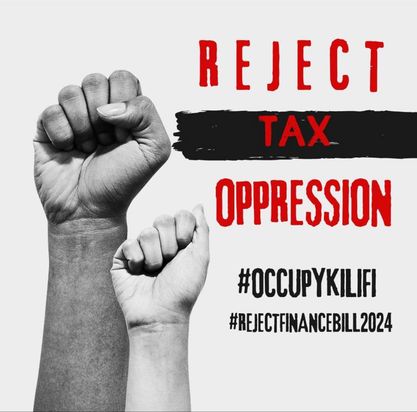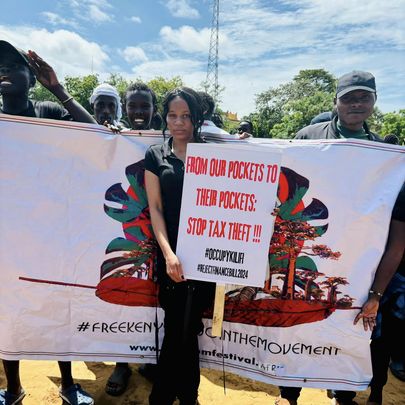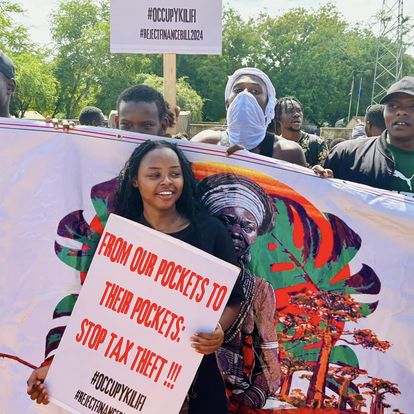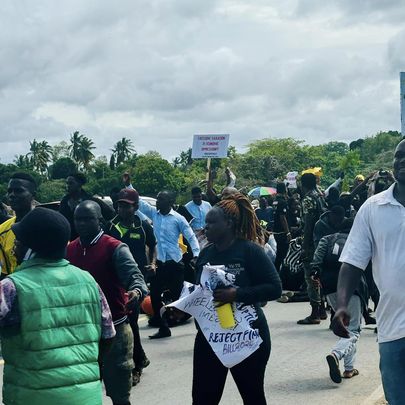Voice- Out program
This is an Advocacy and Lobby Program that is designed to advocate for policies and practices that promote integrity, social justice, and sustainable development at the local, national, and international levels. The program aims to influence decision-makers and policymakers to adopt policies and practices that are aligned with the center’s vision and mission. This programme has the following components include;- a) Research and analysis, b) Lobbying and advocacy, c) Coalition building, and d) Media engagement.
This program aims to achieve the following outcomes: i.) Adoption of policies and practices that promote integrity, social justice, and sustainable development at the local, national, and international levels. ii.) Increased engagement and participation of decision-makers and policymakers in activities that promote integrity, social justice, and sustainable development. iii.) Increased collaboration and partnerships among stakeholders to promote integrity, social justice, and sustainable development. iv.) Improved public awareness and understanding of issues related to integrity, social justice, and sustainable development.
Advocacy against overtaxation
Article released on June 19, 2024.
The recent unveiling of the new finance bill in Kenya has stirred up a storm of concern and apprehension among the populace. With its slated implementation date of July 1st, 2024, the bill has raised red flags due to its potential adverse effects on ordinary citizens. Of particular worry are the proposed hikes in value-added tax on essential items like sanitary towels, a move that is predicted to not only hinder access but also deepen social disparities and widen economic gaps. These repercussions could set off a chain reaction in society, potentially leading to a spike in crime rates and a surge in teenage pregnancies.
Adding to the unease is the persistent issue of youth unemployment in Kenya. The suggestion to levy a mandatory fee of 300 Kenyan shillings on individuals over 25, regardless of their financial circumstances, is ringing alarm bells. This measure has the potential to set off a domino effect of negative outcomes, ranging from an uptick in criminal activities to mental health challenges arising from financial strain.
The introduction of a 30% economic presence tax on non-residents involved in significant economic activities within Kenya has raised concerns about the possible deterrence of investors, posing a threat to the country’s economic growth prospects. Similarly, the proposed doubling of the value-added tax on petroleum from 8% to 16% is expected to drive up transportation costs and inflate the prices of goods, thereby amplifying the overall cost of living for citizens.
Moreover, the imposition of a new motor vehicle tax equivalent to 2.5% of the vehicle’s value at the time of acquiring insurance coverage is seen as a case of double taxation, needlessly burdening vehicle owners. The lack of fiscal transparency and accountability in fund allocation, exemplified by the allocation of 800 million Kenyan shillings for undisclosed “confidential expenditures,” raises significant concerns about the management of public finances.
Furthermore, the disproportionate allocation of funds, such as 250 million for medals, 460 million for the renovation of Harambee Annex, and 660 million for the construction of the Deputy President’s residence, versus the paltry 250 million allocated for the rehabilitation of youth affected by substance abuse, underscores the urgency for amendments to ensure fair taxation, transparent resource allocation, and robust accountability mechanisms in public fund expenditure.
In light of these concerning developments, it is imperative for citizens to take a stand and make their voices heard. Public protests and demonstrations have the power to influence the decision-making process of parliament regarding the passage of the finance bill. By expressing our dissent through peaceful means, we can draw attention to the grievances of the people and compel lawmakers to reconsider or revise the proposed bill in response to the demands of the populace.
Considering external factors such as the political landscape, prevailing power dynamics, and the government’s receptiveness to engaging with protesters’ demands constructively, we hold firm faith in the potency of citizen action. Through mobilization and vocal opposition via peaceful protests, demonstrations, and marches, we can showcase the strength of our collective voice and convey our dissatisfaction with the bill’s detrimental provisions. We trust that the visibility and impact of these protests will instill a sense of urgency and accountability among parliamentarians, urging them to address the concerns raised by the public and potentially reassess their stance on the bill.
In conclusion, it is incumbent upon all citizens to stand united and advocate for a fair and just financial system that prioritizes the well-being of the people. Let us join forces, raise our voices, and demand accountability from our leaders. Together, we can effect positive change and safeguard the interests of all Kenyan citizens.




